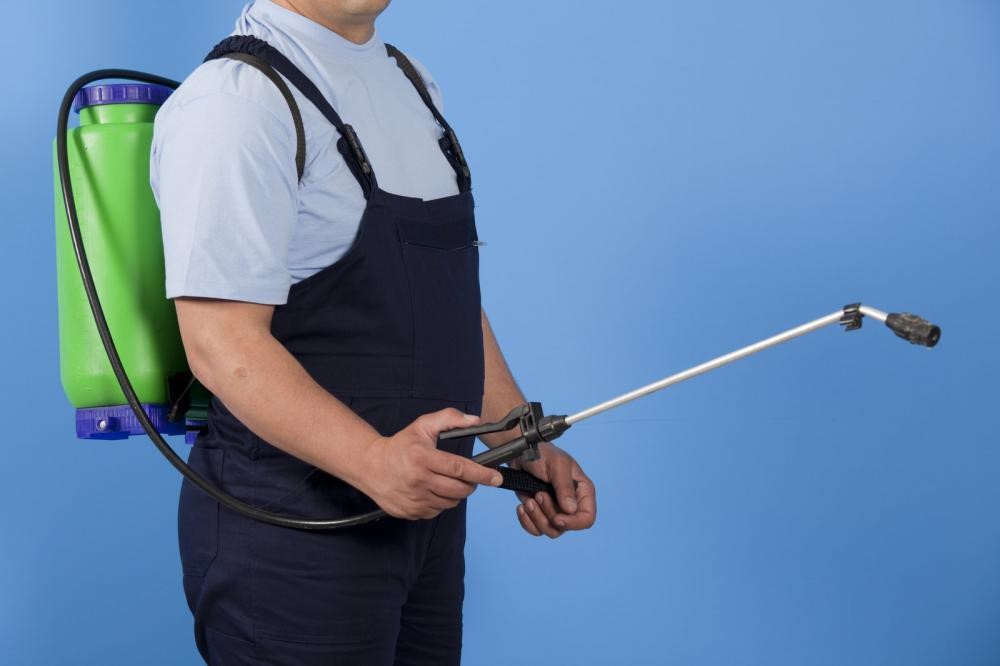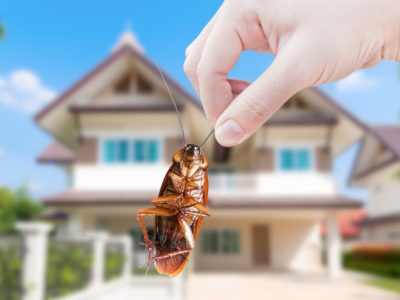Pest Control Clovis Professionals: Safeguarding Your Family Members and Home
Pest Control Clovis Professionals: Safeguarding Your Family Members and Home
Blog Article
Recognizing the Different Strategies to Pest Control: A Comprehensive Overview

All-natural Bug Control Techniques
Using eco-friendly strategies such as companion growing and organic bug control is necessary for successfully managing parasites in farming setups. Friend growing includes expanding different crops in proximity to hinder pests, enhance nutrient uptake, and enhance general crop health and wellness.
Organic bug control involves presenting natural predators or pathogens to regulate pest populaces. Ladybugs, for circumstances, eat aphids, managing their numbers without the need for chemical pesticides. One more instance is using Bacillus thuringiensis (Bt), a bacterium that targets specific insect pests while being safe to human beings, pets, and helpful bugs.
These environment-friendly techniques not just lower the reliance on synthetic pesticides yet also assist maintain biodiversity and dirt health and wellness. By including natural parasite control techniques into farming practices, farmers can attain lasting bug monitoring while lessening negative effect on the environment.

Chemical Parasite Control Solutions
In enhancement to natural pest control techniques, the usage of chemical pest control options plays a significant role in effectively taking care of pest populations in farming atmospheres. Chemical pest control options are created to target specific pests that may trigger considerable damage to crops. These options usually consist of synthetic pesticides that are made to get rid of pests swiftly and efficiently.
Among the key benefits of chemical bug control remedies is their performance in managing bug infestations on a big range. Farmers can use these solutions utilizing different techniques such as splashing, airing out, or seed treatment to shield their crops from dangerous pests, weeds, and conditions. Additionally, chemical parasite control solutions are fairly very easy to use and can provide quick outcomes, assisting farmers protect their returns and decrease economic losses.
However, it is necessary to utilize chemical insect control services deliberately to decrease potential adverse influence on the environment, non-target microorganisms, and human health. Proper application methods, adherence to security standards, and routine tracking are critical to make certain the accountable use chemical pest control solutions in agricultural methods.
Biological Pest Control Approaches
Biological pest control approaches leverage natural killers or microorganisms to manage bug populaces in agricultural setups effectively. One common organic control technique is the introduction of natural enemies, such as ladybugs or parasitical wasps, to target particular bugs.
One visit this site more biological control approach involves utilizing virus like germs, fungi, or viruses to contaminate and kill parasites. Overall, organic bug control approaches provide a sustainable and targeted solution to pest administration in agriculture.
Integrated Bug Administration (IPM)
Integrated Parasite Management (IPM) is a comprehensive approach that combines different pest control methods to effectively manage and decrease pest populaces in farming systems. IPM concentrates on lasting avoidance of parasites with a combination of biological, cultural, physical, and chemical control methods. By integrating these various techniques, IPM intends to minimize reliance on chemical pesticides, reduce ecological influence, and promote sustainable pest administration techniques.
One trick facet of IPM is making use of biological controls such as natural predators, parasites, and microorganisms to control bug populations. This technique utilizes the power of nature to maintain a balance in between bugs and their all-natural enemies without triggering harm to the atmosphere.
Furthermore, IPM involves cultural methods like plant habitat, turning, and hygiene manipulation to produce unfavorable conditions for insects and interrupt their life cycles. Physical controls such as barriers, composts, and traps are also made use of to avoid pest infestations.
Mechanical and Physical Parasite Control Techniques
Using non-chemical techniques, such as mechanical and physical pest control methods, is an important facet of extensive bug monitoring strategies, building on the foundation of Integrated Pest Administration's holistic method. Mechanical pest control includes making use of physical barriers or catches to avoid bugs from accessing and damaging crops or frameworks. This method can consist of strategies like mounting displays on home windows, using row covers in farming, or utilizing sticky catches to capture pests.
Physical parasite control methods, on the various other hand, concentrate on directly getting rid of bugs via physical methods. Making use of heat therapies to eliminate bed pests or vacuuming up parasites like crawlers or ants can be reliable means to manage infestations without the usage of chemicals. By including these physical and mechanical insect control techniques right into an Integrated Insect Administration plan, professionals and people can lower reliance on pesticides while still properly minimizing and managing pest populaces damages.
Final Thought

In enhancement to all-natural parasite control approaches, the application of chemical pest control options plays a significant function in effectively managing pest populations in farming settings.One of the essential benefits of chemical bug control solutions is their performance in managing parasite infestations on a big image source range.Integrated Insect Management (IPM) is a thorough strategy that integrates numerous bug control methods to properly handle and lessen pest populations in farming systems.Making use of non-chemical methods, such as mechanical and physical bug control methods, is a crucial aspect of detailed pest administration techniques, developing upon the structure of Integrated Pest Administration's holistic strategy. By incorporating these physical and mechanical insect control strategies right into an Integrated Pest Administration strategy, professionals and individuals can reduce reliance on chemicals while still properly taking care of pest populations and decreasing damages.
Report this page